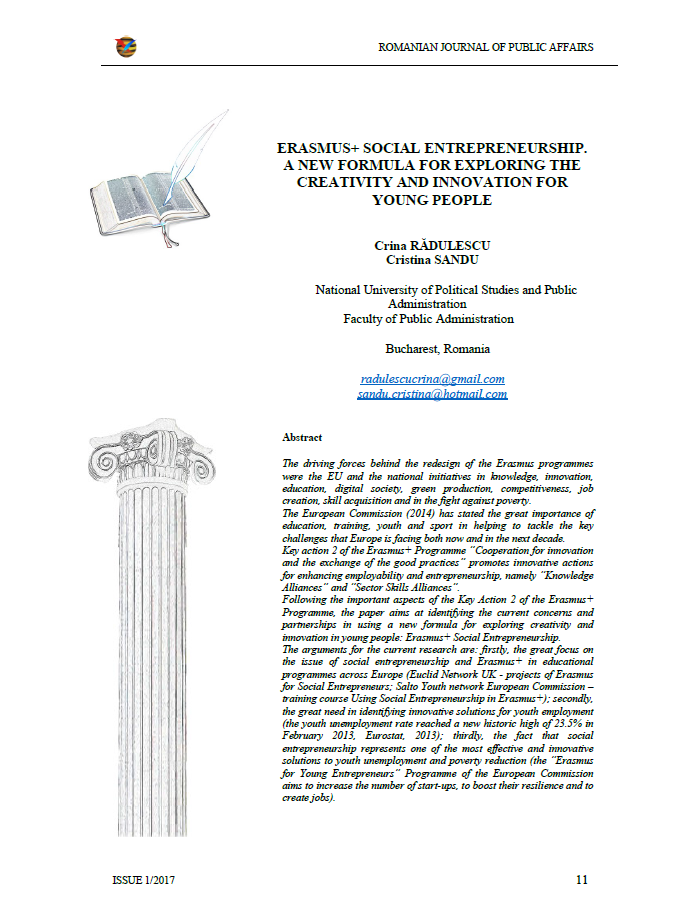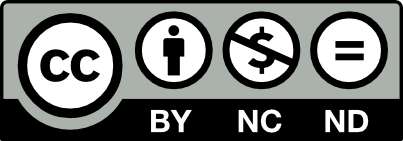Erasmus+ Social Entrepreneurship. A New Formula for Exploring the Creativity and Innovation for Young People
Keywords:
innovation , youth, entrepreneurship, Erasmus+Abstract
The driving forces behind the redesign of the Erasmus programmes were the EU and the national initiatives in knowledge, innovation, education, digital society, green production, competitiveness, job creation, skill acquisition and in the fight against poverty.
The European Commission (2014) has stated the great importance of education, training, youth and sport in helping to tackle the key challenges that Europe is facing both now and in the next decade. Key action 2 of the Erasmus+ Programme “Cooperation for innovation and the exchange of the good practices” promotes innovative actions for enhancing employability and entrepreneurship, namely “Knowledge Alliances” and “Sector Skills Alliances”.
Following the important aspects of the Key Action 2 of the Erasmus+ Programme, the paper aims at identifying the current concerns and partnerships in using a new formula for exploring creativity and innovation in young people: Erasmus+ Social Entrepreneurship.
The arguments for the current research are: firstly, the great focus on the issue of social entrepreneurship and Erasmus+ in educational programmes across Europe (Euclid Network UK - projects of Erasmus for Social Entrepreneurs; Salto Youth network European Commission – training course Using Social Entrepreneurship in Erasmus+); secondly, the great need in identifying innovative solutions for youth employment (the youth unemployment rate reached a new historic high of 23.5% in February 2013, Eurostat, 2013); thirdly, the fact that social entrepreneurship represents one of the most effective and innovative solutions to youth unemployment and poverty reduction (the “Erasmus for Young Entrepreneurs” Programme of the European Commission aims to increase the number of start-ups, to boost their resilience and to create jobs).
In order to achieve the aim of the paper, the research methodology will employ two main sections:
- The first section - an empirical study of successful Erasmus stories from within the National University of Political Studies and Public Administration, Romania in its cooperation with partner-universities. The objective is to analyse and identify the labour insertion opportunities for Erasmus students after attending this programme. The empirical study will make use of questionnaires completed by former Erasmus students within the National University of Political Studies and Public Administration, Romania with partner-universities and statistical data obtained;
- The second section - a descriptive analysis of the current initiatives in Erasmus+ and Social Entrepreneurship, connected to the empirical study’s results. The objective is to identify the partnerships and financing opportunities for Erasmus+ and Social Entrepreneurship across Europe. The descriptive analysis will make use of reports and documents at European and national levels.

Downloads
Published
Issue
Section
License

This work is licensed under a Creative Commons Attribution-NonCommercial-NoDerivatives 4.0 International License.


